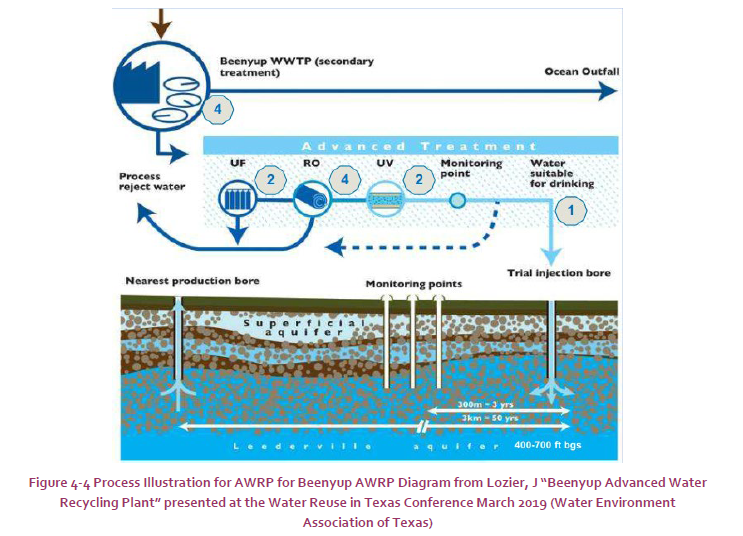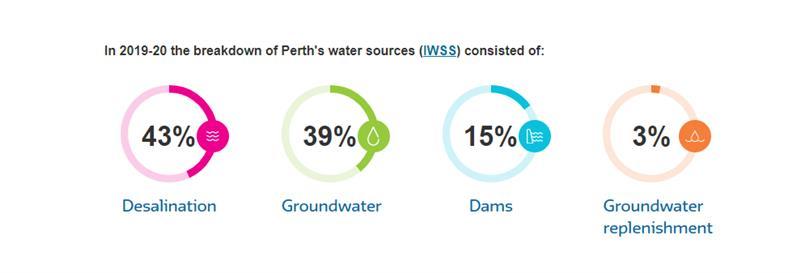Lismore's water security on the agenda for Council meeting
Simon Mumford
11 April 2021, 9:04 PM

Lismore City Council will hold its monthly council meeting tomorrow night with water security one of the talking points.
Councillor Nancy Casson has put forward a motion that:
1. Lismore City Council send a clear message regarding concerns about a secure water strategy for our region moving forward.
2. Rous County Council continue its investigations as to our access to water going into the future.
Read more water news: The Lake Pool: is back on the agenda again
Rescheduled public meeting asks should landholders harvest more rain runoff?
What we don't yet is will the motion include the Dunoon Dam or to continue along Rous County Council's path of securing our water supply through alternative means like aquifer and recycled water projects.
Most of the community don't fully understand the processes or the costs involved in securing our water supply for the next 40 years. The Lismore App aims to give you as clearer picture as possible from both sides of the argument. So, please take the time to read through this story.
Dr Ros Irwin contacted us last week following Rous County Council's latest report and subsequent story on the Lismore App (Rous have a new future water supply plan now Dunoon Dam is dead):
"I’m pleased to see Rous County Council (RCC) has acknowledged that the Dunoon Dam is not to proceed and that the first two options to be implemented are groundwater and recycled water. It is clear from water scientists and experts that if these two options are implemented fully there would be no need for the dam."
"Such an expensive option would, at the very least, result in generational inequity and show shocking disrespect for the Widjabal/Wyabalpeople who are totally opposed to it."
"So I thank the Rous Councillors who supported this outcome.I am, however, really concerned that there is misinformation being promoted around the Region about recycled water, and that it seems to emanate from some people in RCC itself."
"The two arguments raised against recycled water are that (a) it has not been implemented in Australia and that (b)it does not meet public health requirements. Both of these are not true."
"Whilst water recycling occurs in many places internationally, in Perth the Water Corporation of Western Australia (WCWA) takes sewage after it has been through a wastewater treatment plant, treats it again to bring it up to drinking standard and then returns it to the city's groundwater, which becomes part of the potable source of drinking water.
"In regard to (b) the quality of water supplied is governed by Australian Drinking Water Guidelines that are in line with the World Health Organisation’s drinking water quality guidelines. Of course no water authority would permit water that didn't meet those standards to be added to potable water."
"As I recall when the Perradenya project was being considered, it's arguable that recycled water is even purer than that released from Rocky Creek dam. As identified by the WCWA, once people understood water recycling there was widespread support for it, with 79% in favour. This was after they established a visitor centre with a big trial facility and took thousands of school children and their parents through it to try to ensure that people understand the technology and the risks."
"The inclusion of school children was really smart from my perspective, as experience shows that they have 'pester power' on their parents. RCC would be well-advised to proceed with water recycling to potable use, which is already an approved condition for Perradenya, and make sure that the consultation process is similar to that of the WCWA, albeit on a smaller scale."
"It has been an option for RCC for over 25 years and, when implemented, will ensure that it meets the demands of all their water users for the foreseeable future."
The Lismore App contacted Rous County Council about these points from Dr Irwin and received the following reply:
"Dr Irwin was referring to the Beenyup Advanced Water Recycling Plant in Perth and its associated Managed Aquifer Recharged (MAR) scheme. This was the first full scale groundwater replenishment scheme in Australia (the scheme is a indirect potable reuse scheme, I refer to the below process illustration) and it had an initial recharge capacity of 14Gl/yr into groundwater supplies, to be expanded to 28GL/yr which is currently being commissioned and will become fully operational in 2021."
"Prior to this there also was a demonstration plant operated from 2009 to 2012 for evaluation by regulatory agencies and for community engagement. Western Australia has a highly developed regulatory system for the approvals of indirect potable reuse and Managed Aquifer Recharged (MAR) schemes."
"The scheme is a indirect potable reuse as there is significant time and dilution of source water with the recharged treated water before it is potentially extracted for potable town water supply. The below process illustrates this concept."

Currently, groundwater replenishment makes up 3% of Water Corporation’s supply or approx. 10 GL per year.

"The costs of the scheme are not publicly available through the Water Corporation’s website. Although, it is believed that stage 1 costed A$125 million based on a submission to the global water awards. The Pilot plant was believe to be $31 million based on federal grant contributions."
"Unlike, the Water corporation in Western Australia, our region does not have a permanent groundwater source used to supply town water customers. So a groundwater scheme is required before a managed aquifer recharge scheme could be considered."
"During the development of the Rous County Council Integrated Water Cycle Management strategy, Council assess the long term reliability if a indirect potable reuse scheme was possible. This study found it to be relatively low at 1275ML/a or 8% of the future demand for water in our region."
"Additionally, our current sources that can receive highly treated water is the Wilson River Source and Emigrant Creek Dam, and both can not achieve the preferred detention time and dilution rates with natural source water, meaning that the benefits of receiving waters can not be claimed and additional engineered treatment barriers (such as for direct potable reuse) or large treated-water storages would be required."
"These items would come at a high cost. Nevertheless, RCC will, concurrent with our direct potable reuse pilot scheme, continue to investigate the potential for indirect potable reuse schemes (most likely at Lismore and Ballina/Lennox Head) to supplement the regional water supply. The investigations over the next four-year period will focus on:
- Further development of the scheme concepts and establishing costs for the preferred schemes.
- Liaison with the BaSC and LCC to confirm the quantity of water potentially available from the WWTPs.
- Investigating the feasibility of the recharge of groundwater aquifers.
- Providing information to the NSW Government and industry to assist in the development of a policy on indirect potable reuse in NSW.
"Unfortunately, some of the statements being made in the public conversation have often interchanged recycled water (for non potable purposes), indirect potable reuse and direct potable reuse. Each of these options are very different and have their own benefits and challenges.
We attempted to explain the differences below:
- Non Potable Purposes: recycled water used for flushing toilets and washing clothes like some Ballina and Lennox Heads home currently use.
- Indirect Potable Purposes: Recycled water that is added to the existing supply further upstream for further natural filtration like the Perth water project.
- Direct Potable Reuse: The drinking of recycled water direct from the treatment plant to households.
As you can read, water security and the best and most cost effective way forward is not a simple issue. It is an issue however that we need to ask our local councils for as much information as possible as it is us, the residents that these decisions will affect.
JOBS
